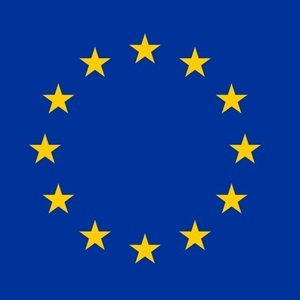European Commission unveils plans to cut GHG emissions by 55%




July 14, 2021
BY Erin Krueger
The European Commission on July 14 adopted a package of proposals that aim to reduce net greenhouse gas (GHG) emissions by at least 55 percent by 2030 when compared to 1990 levels. Among the proposals are those related to forestry, renewable energy and sustainable aviation fuel (SAF).
One of these proposals, the Regulation on Land Use, Forestry and Agriculture, sets a overall European Union target for carbon removals by natural sinks, equivalent to 310 metric tons of carbon dioxide emissions by 2030. National targets will require member states to care for and expand their carbon sinks to meet this target. By 2035, the EU should aim to reach climate neutrality in the land use, forestry and agriculture sectors, including agricultural non-CO2 emissions, such as those from fertilizer use and livestock.
Advertisement
Advertisement
As part of that regulation, the EU Forest Strategy aims to improve the quality, quantity and resilience of EU forests. According to the EC, it supports foresters and the forest-based bioeconomy while keeping harvesting and biomass use sustainable, preserving biodiversity, and setting a plan to plan 3 billion trees across Europe by 2030.
Another of the proposals updates the Renewable Energy Directive, setting a target to produce 40 percent of EU energy from renewable sources by 2030. All member states will contribute to that goal, and specific targets are proposed for renewable energy used in transport, heating and cooling, buildings and industry. The proposal enacts more stringent sustainability criteria for the use of bioenergy and indicates that member states must design any support schemes for bioenergy in a way that respects the cascading principle of uses for woody biomass.
Advertisement
Advertisement
A third proposal focuses on aviation and marine fuels. It includes the ReFuelEU Aviation Initiative, which will require fuel supplies to blend increasing levels of SAF in jet fuel taken on-board at EU airports, including synthetic low carbon fuels. Similarly, the FuelEU Maritime Initiative will increase the uptake of sustainable maritime fuels and zero-emission technologies by setting a maximum limit on the GHG content of energy used by ships calling at European ports.
Additional information is available on the European Commission website.
Related Stories
The U.S. Department of Energy Bioenergy Technologies Office (BETO) announced up to $23 million in funding to support research and development (R&D) of domestic chemicals and fuels from biomass and waste resources.
The U.S. DOE has announced its intent to issue funding to support high-impact research and development (R&D) projects in two priority areas: sustainable propane and renewable chemicals and algal system cultivation and preprocessing.
Sens. Sherrod Brown, D-Ohio, and Pete Ricketts, R-Neb., in August introduced the Renewable Chemicals Act, a bill that aims to create a tax credit to support the production of biobased chemicals.
The Chemical Catalysis for Bioenergy Consortium, a consortium of the U.S. DOE’s Bioenergy Technologies Office, has launched an effort that aims to gather community input on the development of new biomass processing facilities.
USDA on March 8 celebrated the second annual National Biobased Products Day, a celebration to raise public awareness of biobased products, their benefits and their contributions to the U.S. economy and rural communities.
Upcoming Events










